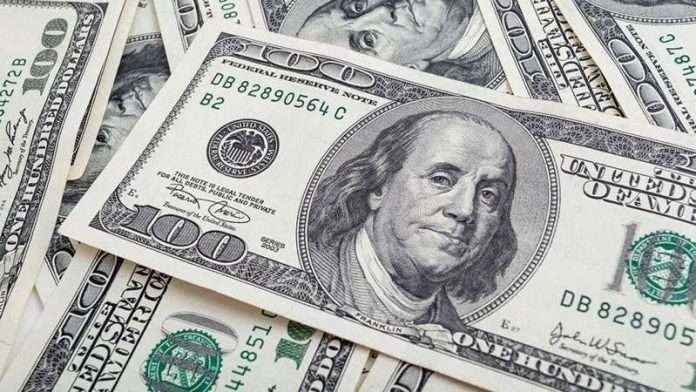The dollar is heading towards recording its second consecutive quarterly loss today, while investors believe that US interest rates are close to peaking. It seems that the modest support resulting from the demand for safe havens in mid-March is about to expire, after concerns about the banking sector rocked global markets.
The dollar index fell 1.3 percent during the first quarter of the year. The euro rose 0.5 percent overnight after stronger-than-expected inflation data in Germany boosted expectations of further rate hikes in the euro zone. In the latest Asian transactions, the euro rose slightly to $1.0908. The dollar rose 0.2 percent against the yen to 133.07 yen, reports Al-Rai daily.
During March, the markets revised the bets significantly and now expect a near 40 percent chance that the Federal Reserve (the US central bank) will stop raising interest rates. Societe Generale analysts said in a note, “The dollar is likely to remain range bound until the impact becomes more apparent, but if the US interest rate outlook continues to be reassessed, there will be further decline.”
The collapse of Silicon Valley bank three weeks ago unleashed broader concerns about confidence in the banking sector around the world, prompting UBS to acquire rival Credit Suisse and sending banking shares lower. Currency markets were generally more stable than stocks. But the yen, which is considered a safe haven, rose 2.5 percent during the month, marking the best performance for the month of March since 2008.
The New Zealand dollar recorded its highest level in nearly two weeks at $0.6296. It fell about 1 percent during the first quarter of the year. As for the Australian dollar, it rose 0.2 percent to $0.6721. It is also down about 1.3 percent during the quarter. The two currencies were supported by increased Chinese manufacturing activity, although data released on Friday showed the pace slowing. The Chinese yuan rose about 0.3 percent.
And the pound sterling rose 0.1 percent to $ 1.2400 and is looking forward to a quarterly gain of 2.5 percent, as investors believe that severe British inflation will require more rate hikes to curb it. Data on inflation in the eurozone and core personal consumption expenditures in the US, the US central bank’s preferred measure of inflation, are due later today.

















